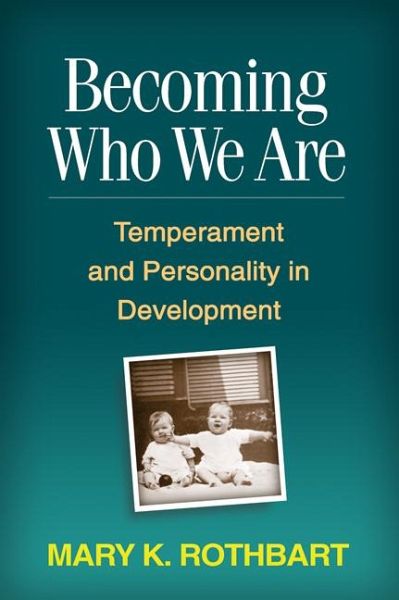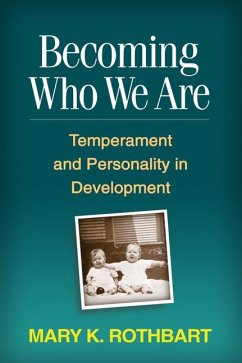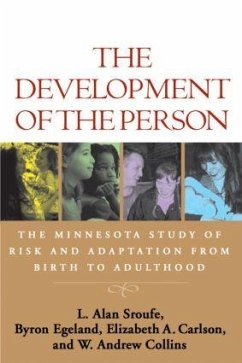
Becoming Who We Are
Temperament and Personality in Development
Versandkostenfrei!
Versandfertig in über 4 Wochen
76,99 €
inkl. MwSt.

PAYBACK Punkte
38 °P sammeln!
This definitive work comprehensively examines the role of temperament in the development of personality and psychopathology. Preeminent researcher Mary Rothbart synthesizes current knowledge on temperament's basic dimensions; its interactions with biology, the social environment, and developmental processes; and influences on personality, behavior, and social adjustment across the lifespan. In a direct and readable style, Rothbart combines theory and research with everyday observations and clinical examples. She offers new insights on "difficult" children and reviews intervention programs that address temperamental factors in childhood problems.
What are the basic dimensions of temperament? How does temperament influence children's relationships to their physical and social worlds--and their behavior and adjustment across the lifespan? From preeminent researcher Mary Rothbart, this work comprehensively examines the role of temperament in the development of personality and psychopathology. In a direct and accessible style, Rothbart elucidates both the underlying biological processes and social transactions that shape each child's unique identity. She presents innovative approaches to conceptualizing and measuring temperament's basic dimensions, and explains how these dimensions form the core of the developing personality. Incorporating important advances in neuroscience, the book explores the impact of temperament on the ways in which children: *Interact with parents and other caregivers.*Form an enduring sense of self.*Cope with challenges and adversity.*Learn to regulate their emotions.*Develop empathy and conscience.*Establish healthy or maladaptive patterns of behavior. Findings on stability and change in children's traits are thoroughly reviewed. Rothbart considers the crucial question of how to respect individual differences while at the same time fostering and supporting prosocial behavior. She offers new insights on "difficult" children and describes intervention programs that address temperamental factors in childhood problems. A major contribution from a leader in the field, this book belongs on the shelves of developmental psychologists and personality/social psychologists, as well as child clinical psychologists and other mental health practitioners. In addition, graduate students and advanced undergraduates will find it a compelling, highly readable text.












